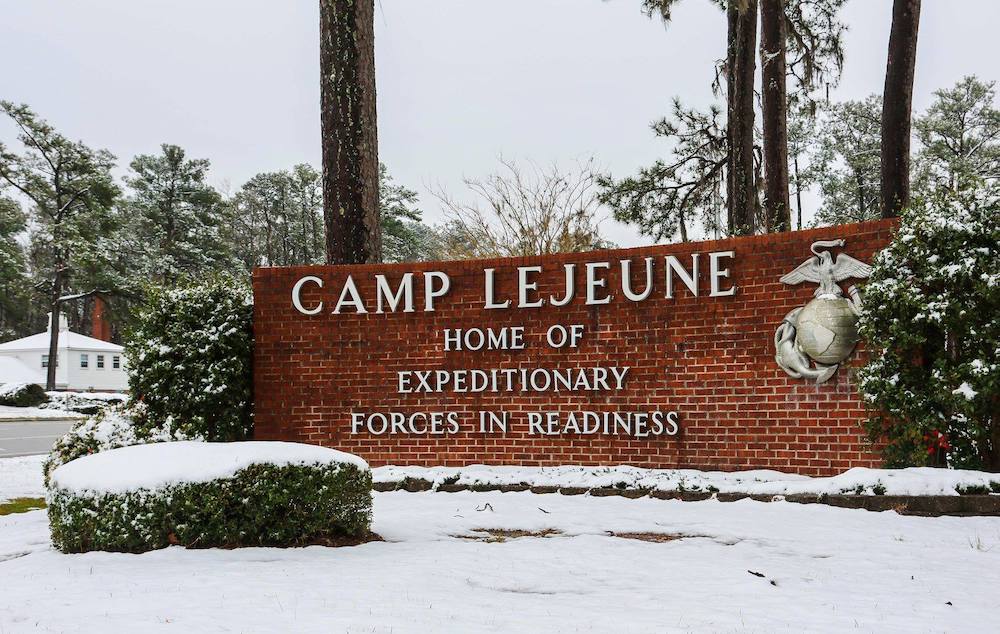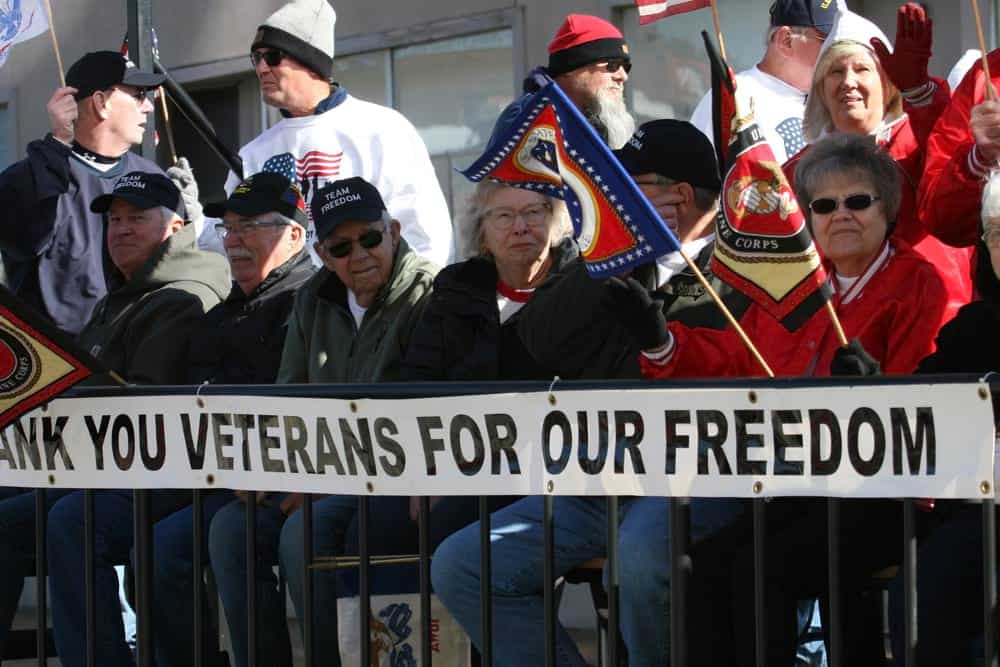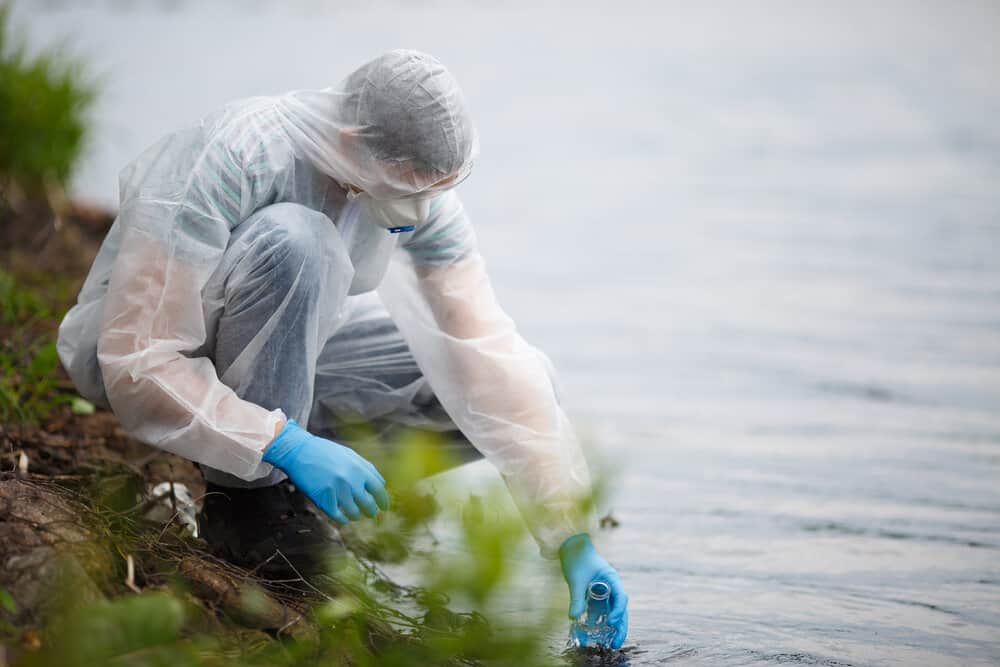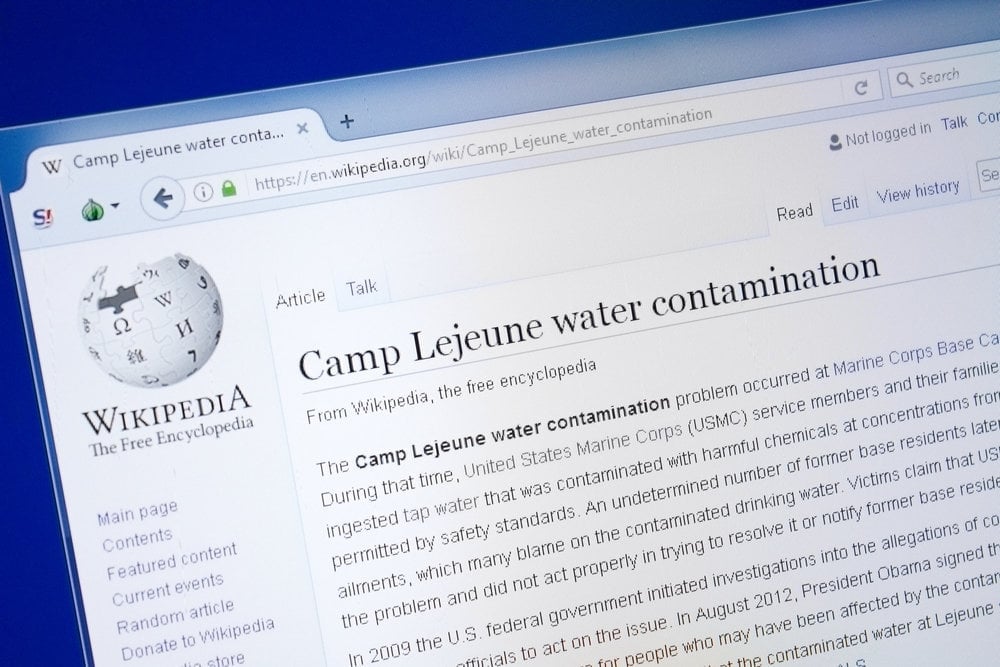Camp Lejeune, a Marine Corps base in North Carolina, has a long and unfortunate history regarding the contamination of its drinking water. Between the 1950s and the 1980s, harmful chemicals and toxins were present in the base’s water supply, leading to severe health issues and illnesses for countless military personnel and their families. The consequences of this contamination continue to reverberate, prompting federal legislation, investigations, and lawsuits on behalf of the victims.
Find the right attorneys to handle your Camp Lejeune claim or lawsuit.
In response to the crisis, the Camp Lejeune Justice Act was proposed to enable those affected by the toxic water to file reimbursement claims in federal court. Victims have filed thousands of claims, while the US Department of Veterans Affairs acknowledges 15 specific health conditions related to the Camp Lejeune water contamination. The existing legal and support systems for victims remain insufficient, spurring ongoing efforts toward justice and compensation.
Key Takeaways
- Camp Lejeune’s water contamination caused serious health issues for many military personnel and their families.
- The Camp Lejeune Justice Act was proposed to facilitate reimbursement claims in federal court, and the US Department of Veterans Affairs recognizes 15 related health conditions.
- Ongoing challenges require a continued push for justice and better support systems for victims.
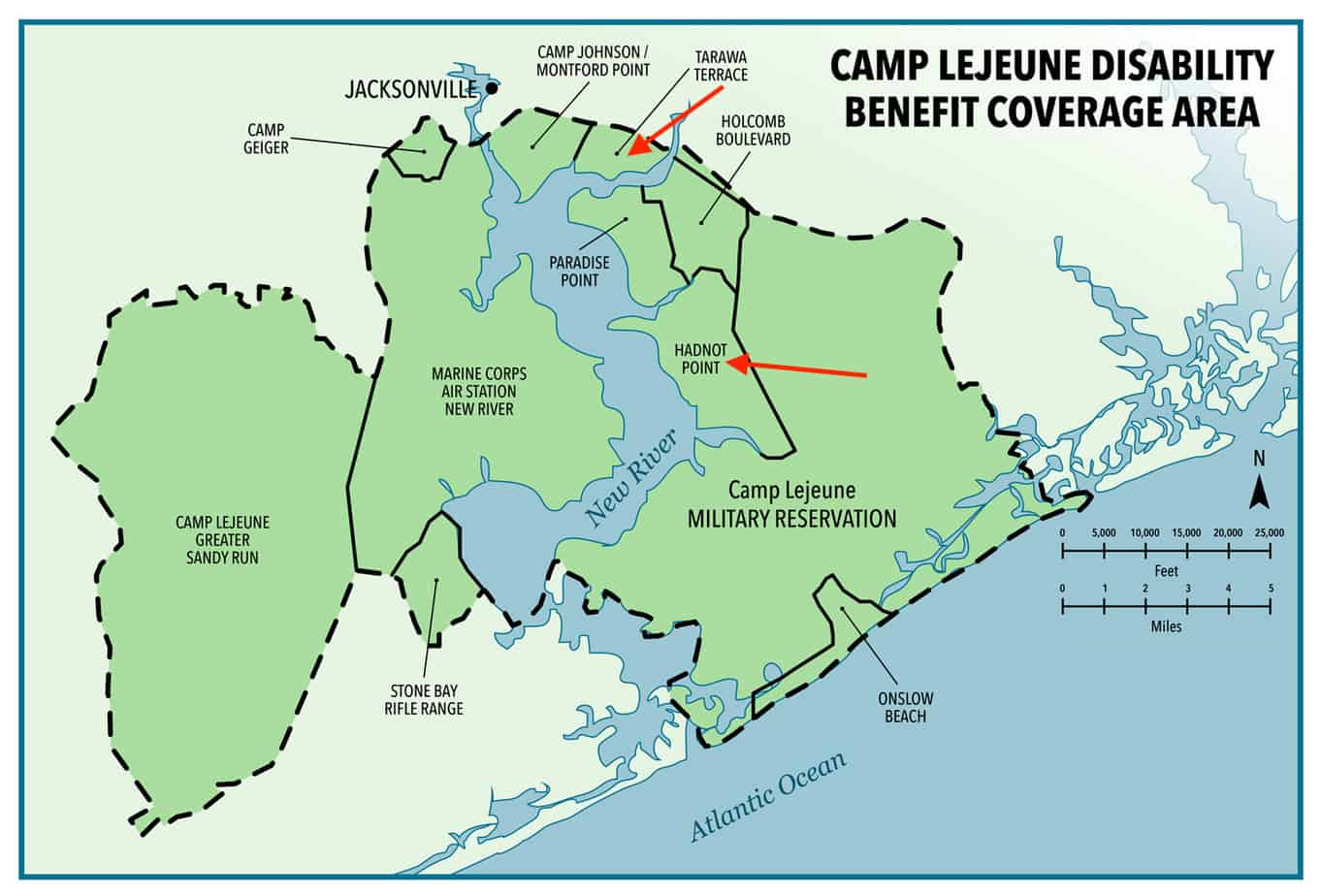
Camp Lejeune: Background
History and Location
Camp Lejeune is a Marine Corps base in North Carolina that was established in 1941. The base is named in honor of Major General John A. Lejeune, 13th Commandant of the Marine Corps. Covering over 246 square miles, Camp Lejeune is one of the largest Marine Corps bases in the United States and is home to a variety of Marine Corps commands, as well as the Marine Corps Base Camp Lejeune Command, which offers support for the Marines, sailors, and their family members living and working on the base.
Marine Corps Operations
The Marine Corps at Camp Lejeune conducts various operations and training exercises, including amphibious assault training, small arms training, and specialized schools for combat service support. These operations are essential for maintaining the readiness and effectiveness of the Marine Corps as they prepare Marines for deployment and engagement in various combat scenarios across the globe. In addition, Camp Lejeune serves as a hub for other support services and infrastructure, such as logistics, communications, and medical care applicable to military personnel and their families.
Water Contamination
Contaminated Wells
Significant water contamination occurred between August 1, 1953, and December 31, 1987, in Marine Corps Base Camp Lejeune and Marine Corps Air Station (MCAS) New River, North Carolina. The contamination was caused by multiple sources, including solvents from an off-base dry cleaning company, on-base units using hazardous chemicals to clean military equipment, and leaks from underground fuel storage tanks1. The toxic chemicals leached into the water supply, contaminating wells and exposing thousands of military personnel and their families to dangerous drinking water.
Hazardous Chemicals
The primary hazardous chemicals found in Camp Lejeune’s water supply include trichloroethylene (TCE), benzene, and vinyl chloride. These chemicals are known to cause adverse health effects on those exposed. Exposure may increase the risk of developing debilitating or life-threatening illnesses like cancer, reproductive issues, and neurological disorders.
- Trichloroethylene (TCE): A volatile organic compound commonly used as a degreaser, TCE is known to cause liver and kidney damage and has been associated with an increased risk of certain cancers, including kidney, liver, and non-Hodgkin’s lymphoma.
- Benzene: A widely-used industrial chemical, benzene is a known carcinogen linked to leukemia and other blood and bone marrow disorders.
- Vinyl chloride: Mainly used to produce polyvinyl chloride (PVC) plastics, vinyl chloride exposure has been associated with increased risks of liver cancer and other liver-related health issues.
Camp Lejeune victims have filed thousands of claims since the new legislation removed roadblocks for their cases. Despite progress, many of these victims are still waiting for closure and compensation due to their exposure to the contaminated water at Camp Lejeune.
Health Issues and Diseases
Cancer Types
Victims of Camp Lejeune water contamination, including veterans and family members, have been found to suffer from various types of cancers. Some of the common cancer types associated with exposure to contaminated water at Camp Lejeune are:
- Bladder cancer: Affecting the urinary bladder; this cancer type has been linked to the contaminated water at Camp Lejeune.
- Kidney cancer: Another cancer type that has been associated with exposure is kidney cancer, which affects the kidneys.
- Breast cancer: Although more commonly found in women, breast cancer has also been linked to the contaminated water at Camp Lejeune and can affect both men and women.
- Leukemia: A cancer that affects the blood and bone marrow, leukemia has been associated with water contamination at Camp Lejeune.
- Liver cancer: The contaminated water at Camp Lejeune has also been linked to liver cancer, which affects the liver.
- Multiple myeloma: Cancer that affects plasma cells in the bone marrow; multiple myeloma has also been associated with Camp Lejeune water contamination.
- Non-Hodgkin’s lymphoma: Cancer affecting the lymphatic system has been linked to contaminated water exposure at Camp Lejeune.
Other Health Problems
In addition to various types of cancers, Camp Lejeune victims have also experienced other health problems due to contaminated water exposure. One such condition is:
- Parkinson’s disease: A progressive nervous system disorder, Parkinson’s disease has been associated with exposure to contaminated water at Camp Lejeune.
While the health issues and diseases listed above are some of the most common and well-documented among Camp Lejeune victims, it is crucial to acknowledge that other health problems could not yet be identified or directly linked to water contamination.
Veterans and Civilian Employees
Compensation and VA Benefits
Veterans and civilian employees who served at Camp Lejeune or MCAS New River, North Carolina, for at least 30 days between August 1, 1953, and December 31, 1987, may be eligible for compensation and VA benefits due to the water contamination at the base. To qualify, they must also be diagnosed with one or more presumptive conditions, such as adult leukemia. The current approval rate by the VA for Camp Lejeune victim claims is around 5%.
Those affected can access financial compensation and receive assistance with medical expenses associated with their diagnosed conditions. Also, eligible veterans may be entitled to disability compensation when they cannot work.
Legal Assistance
Victims of Camp Lejeune water contamination, including veterans, civilian employees, and their families, can seek legal assistance to protect their rights and help them navigate the complex filing process for compensation and VA benefits. Legal counsel can provide valuable guidance in understanding and interpreting the eligibility criteria and the required documentation when applying for such benefits.
Furthermore, legal counsel can advise on the potential for civil lawsuits by evaluating individual cases and determining possible courses of action. They can also provide counseling and referrals to appropriate resources, assisting clients throughout the process.
Victims must choose knowledgeable and experienced legal assistance, as the regulations and processes surrounding the Camp Lejeune water contamination claims can be intricate and challenging to navigate. Proper legal advice can significantly affect the outcome of a victim’s claim and access to the compensation they deserve.
Investigations and Lawsuits
CID and NCIS
The Criminal Investigation Division (CID) and the Naval Criminal Investigative Service (NCIS) have investigated water contamination at Camp Lejeune. Various lawsuits have been filed against the government, and thousands of claims have been made by victims suffering from diseases linked to the tainted water supply. As a result, the Camp Lejeune Justice Act was passed in August 2022, providing victims with a two-year window to pursue legal action against the federal government for damages related to illnesses or injuries caused by the contamination.
PMO and VWAP
In addition to CID and NCIS, the Provost Marshal’s Office (PMO) and the Victim and Witness Assistance Program (VWAP) have roles in supporting victims pursuing compensation. PMO’s primary responsibility is maintaining law and order within the military installation. At the same time, VWAP ensures that victims and witnesses are informed of their rights and provided with the appropriate support and assistance throughout the process.
As of June 2023, around 5,000 claims have been filed regarding contaminated water at Camp Lejeune. These cover a variety of diseases and health issues, including cancers, neurological disorders, and other serious conditions. The Camp Lejeune water contamination lawsuits seek compensation for victims’ losses and hold the government accountable for its failure to protect the health and well-being of military personnel and their families.
| Entity | Role |
|---|---|
| CID | Investigation of water contamination at Camp Lejeune |
| NCIS | Investigation of water contamination at Camp Lejeune |
| PMO | Support and maintenance of law and order within the military installation |
| VWAP | Support and assistance for victims and witnesses |
| Damages | Compensation sought by victims for losses related to illnesses or injuries |
| Diseases | Health issues linked to water contamination |
| Lawsuits | Legal actions taken by victims against the government |
| Administrative Claim | Initial process of seeking compensation from the government for damages |
| Investigators | Professionals working on the case |
| Criminal Investigators | Investigators from CID and NCIS involved in probing the contamination |
The entities mentioned above all play vital roles in the ongoing effort to seek justice for Camp Lejeune water contamination victims and ensure that necessary support is provided to those affected by this tragedy.
Military Justice Process
Sexual Assault Response Coordinator (SARC)
The Military Justice Process plays a critical role in addressing cases of sexual assault within the armed forces. A crucial component of this process is the Sexual Assault Response Coordinator (SARC). The SARC is responsible for coordinating resources, support, and assistance for victims of sexual assault, ensuring that they understand their legal options and are guided through the process effectively. These options include obtaining restraining orders and military protective orders and choosing between Restricted and Unrestricted reports of sexual assault.
Protection and Testimony
As part of the Military Justice Process, specific measures are established to guarantee the protection and well-being of victims and witnesses throughout the legal proceedings. These protections are provided by the Regional Victim and Witness Assistance Program, which offers resources, support, and guidance to victims, including those affected by the water contamination at Camp Lejeune.
The Camp Lejeune Justice Act passed in the summer of 2022, was a milestone in allowing victims of water contamination to file lawsuits for compensation. It removed several legal barriers for victims to get compensation, considering the specific circumstances and the impact on those exposed to the toxic water, including in utero.
During the trial phase, the Installation Trial Office at Law Center Camp Lejeune provides legal advice and support to all MCB Camp Lejeune tenant commands. The Military Justice Process emphasizes gathering accurate evidence and testimonies to determine accountability and ensure just outcomes for those affected by incidents like the Camp Lejeune water contamination.
Keeping in mind the PACT Act and the military service obligations of the stakeholders, the Military Justice Process within Camp Lejeune is committed to offering fair and comprehensive legal avenues for all affected individuals. Neutral and transparent proceedings serve as the foundation for achieving justice for the victims and their families.
Legal Outcomes
Medical and Financial Compensation
The Camp Lejeune Justice Act was signed into law in August 2022, providing victims with a two-year window to sue the federal government for losses related to illnesses and injuries caused by toxic water at Camp Lejeune. Over 5,000 victims have already filed a claim since the enactment of the Camp Lejeune Justice Act.
As of May 5, 2023, 45,000 administrative claims have been filed in the Camp Lejeune litigation2. Although there is no multidistrict litigation (MDL) Camp Lejeune class action lawsuit, the court has consolidated all cases for pretrial discovery2.
Assistance for Affected Families
Various law firms have represented Camp Lejeune victims for nearly 15 years, offering legal assistance to Marines and their families affected by the contaminated water. Some specific assistance provided includes:
- Filing administrative claims with the Department of Veterans Affairs (VA) for compensation.
- Pursuing lawsuits against responsible parties for injuries and losses sustained due to exposure.
- Advocating for policy changes and enhanced support for affected individuals.
The Camp Lejeune Justice Act also forms part of the Honoring Our PACT Act, which offers further support and resources to families impacted by contaminated drinking water. Assistance provided through the Honoring Our PACT Act includes:
- Medical care for eligible veterans and their family members.
- VA disability compensation for certain illnesses associated with exposure to contaminated water at Camp Lejeune.
- Dependency and indemnity compensation (DIC) for surviving spouses, children, and dependent parents of veterans who died due to illnesses related to water contamination.
By addressing medical and financial compensation and offering assistance to affected families, the legal outcomes of the Camp Lejeune situation play a crucial role in supporting those who have suffered from exposure to toxic substances.
Frequently Asked Questions
What health issues are associated with Camp Lejeune?
There are numerous health problems associated with the contaminated water at Camp Lejeune. Some more common diseases identified through scientific and medical research include kidney and liver cancer, leukemia, non-Hodgkin’s lymphoma, and neurological disorders. Moreover, pregnant women exposed to the contamination experienced higher rates of miscarriage, lower birth weights, and birth defects in their babies.
How many people were affected by the water contamination?
Estimations suggest that around 1 million people may have been affected by the water contamination at Camp Lejeune. This includes active-duty military personnel, their families, civilian employees, and residents.
What is the time period of the contamination?
The water contamination at Camp Lejeune occurred over three decades, from the 1950s through the 1980s. Specifically, the contamination was most severe between 1957 and 1987 when toxic chemicals were released into the environment from various sources, including industrial operations, waste disposal practices, and underground storage tank leaks.
Has the U.S. government taken any action to compensate victims?
The U.S. government has recognized the Camp Lejeune contamination and enacted the Camp Lejeune Justice Act to provide a framework for victim compensation. Moreover, the Department of Veterans Affairs (VA) offers healthcare benefits, disability compensation, and survivor benefits to eligible individuals exposed to contaminated water.
What types of legal options do affected individuals have?
Affected individuals can seek compensation and benefits through various legal channels. For instance, they can file claims with the VA, which offers benefits for service-connected disabilities and medical conditions associated with the exposure. Additionally, they can take advantage of the Camp Lejeune Justice Act, which provides a process for compensating contamination victims through the legal system.
How can Camp Lejeune victims receive medical care benefits?
Camp Lejeune victims can receive medical care benefits through the VA healthcare system. They must apply for VA healthcare benefits, along with documentation proving their exposure to the contaminated water during the relevant time. Once approved, they can receive healthcare services for conditions related to their exposure.
Conclusion
The Camp Lejeune water contamination issue has been a significant event in U.S. history, affecting thousands of people who lived and worked at the Marine Corps Base Camp Lejeune in Jacksonville, North Carolina. The passage of the Camp Lejeune Justice Act in August 2022 has provided a two-year window for victims to sue the federal government for damages related to illnesses and injuries caused by the toxic water.
Efforts made by the government over the years to address this issue have not been satisfactory to many victims. The Congressional Budget Office estimates that payouts to Camp Lejeune victims will amount to about $6.7 billion through 2031. As victims continue to fight for justice, they also confront the military and the Department of Justice for delaying their pursuit of compensation.
Moving forward, the legal proceedings in the Camp Lejeune water contamination case will seek to bring justice to the victims and provide a fair resolution. However, the complexity of this environmental lawsuit serves as a reminder of the importance of vigilance in protecting public health and ensuring adequate response measures are in place.
